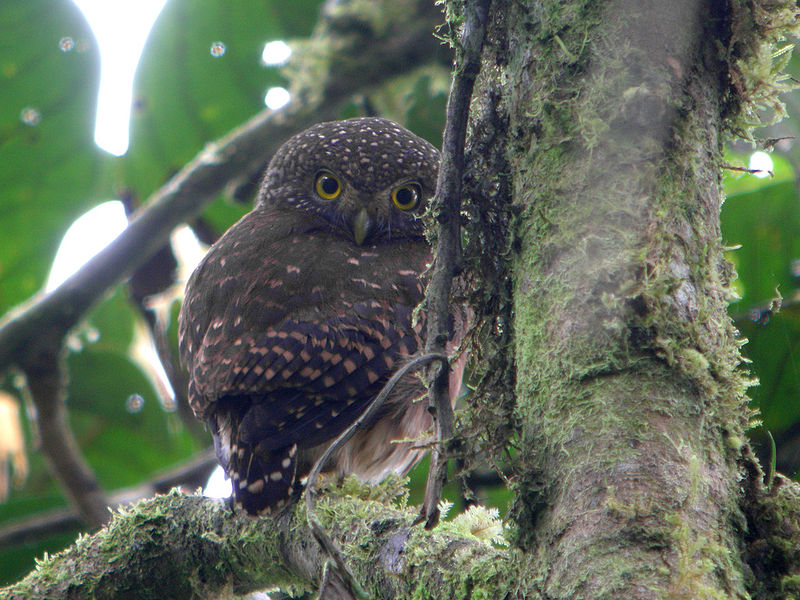Pernambuco Pygmy-owl Glaucidium mooreorum
Critically endangered
Brazil
The Pernambuco Pygmy-owl has been recorded in the canopy of old secondary forest where it was observed eating a cicada. An unconfirmed report suggested that the species was vocal during the rainy months of April and May (S. A. Roda in litt. 2006, 2008). Pernambuco Pygmy-owls has been recorded in forest up to 150 m but has not been found in other well-surveyed forests in the region at elevations between 400 and 600 m. The species has doubtless been extirpated from most of its range by destruction of humid tall forests (Butchart et al. 2018) and any population, if remaining, must be tiny.
The extremely rare Pernambuco Pygmy-owl is critically endangered on the @IUCNredlist due to massive logging and deforestation for #palmoil #beef farming in #Brazil support this animal’s survival by making art. Join the #boycott4wildlife
Tweet
The Pernambuco Center, where this species was described, is by far the most modified region of Atlantic Forest, having declined in extent from c. 39,500 km2 to c. 1,900 km2 by 2002. Most of the 52 remaining reserves are less than 5 km2 in size and almost none of this truly lowland (Butchart et al. 2018). Large amounts of forest were cleared to make way for plantations and agriculture (Pereira et al. 2014). The remainder is severely fragmented and legal restrictions have proven inadequate in halting deforestation from fire and illegal logging.
IUCN Red List
Support the conservation of this species
Further Information

BirdLife International. 2019. Glaucidium mooreorum. The IUCN Red List of Threatened Species 2019: e.T22733081A156084939. https://dx.doi.org/10.2305/IUCN.UK.2019-3.RLTS.T22733081A156084939.en. Downloaded on 15 February 2021.

How can I help the #Boycott4Wildlife?
Contribute in five ways
1. Join the #Boycott4Wildlife on social media and subscribe to stay in the loop: Share posts from this website to your own network on Twitter, Mastadon, Instagram, Facebook and Youtube using the hashtags #Boycottpalmoil #Boycott4Wildlife.
2. Contribute stories: Academics, conservationists, scientists, indigenous rights advocates and animal rights advocates working to expose the corruption of the palm oil industry or to save animals can contribute stories to the website.
3. Supermarket sleuthing: Next time you’re in the supermarket, take photos of products containing palm oil. Share these to social media along with the hashtags to call out the greenwashing and ecocide of the brands who use palm oil. You can also take photos of palm oil free products and congratulate brands when they go palm oil free.
4. Take to the streets: Get in touch with Palm Oil Detectives to find out more.
5. Donate: Make a one-off or monthly donation to Palm Oil Detectives as a way of saying thank you and to help pay for ongoing running costs of the website and social media campaigns. Donate here









One thought on “Pernambuco Pygmy-owl Glaucidium mooreorum”